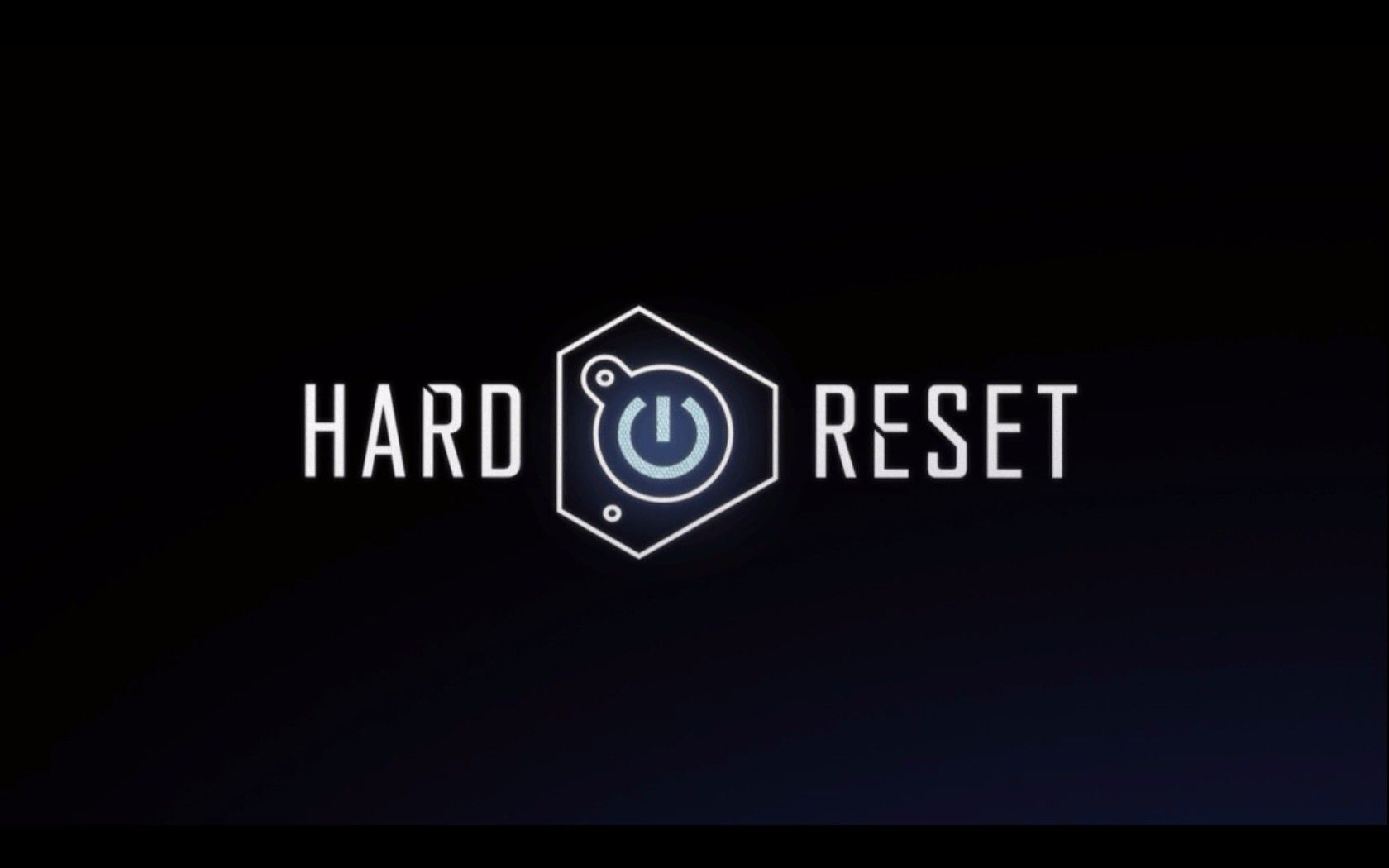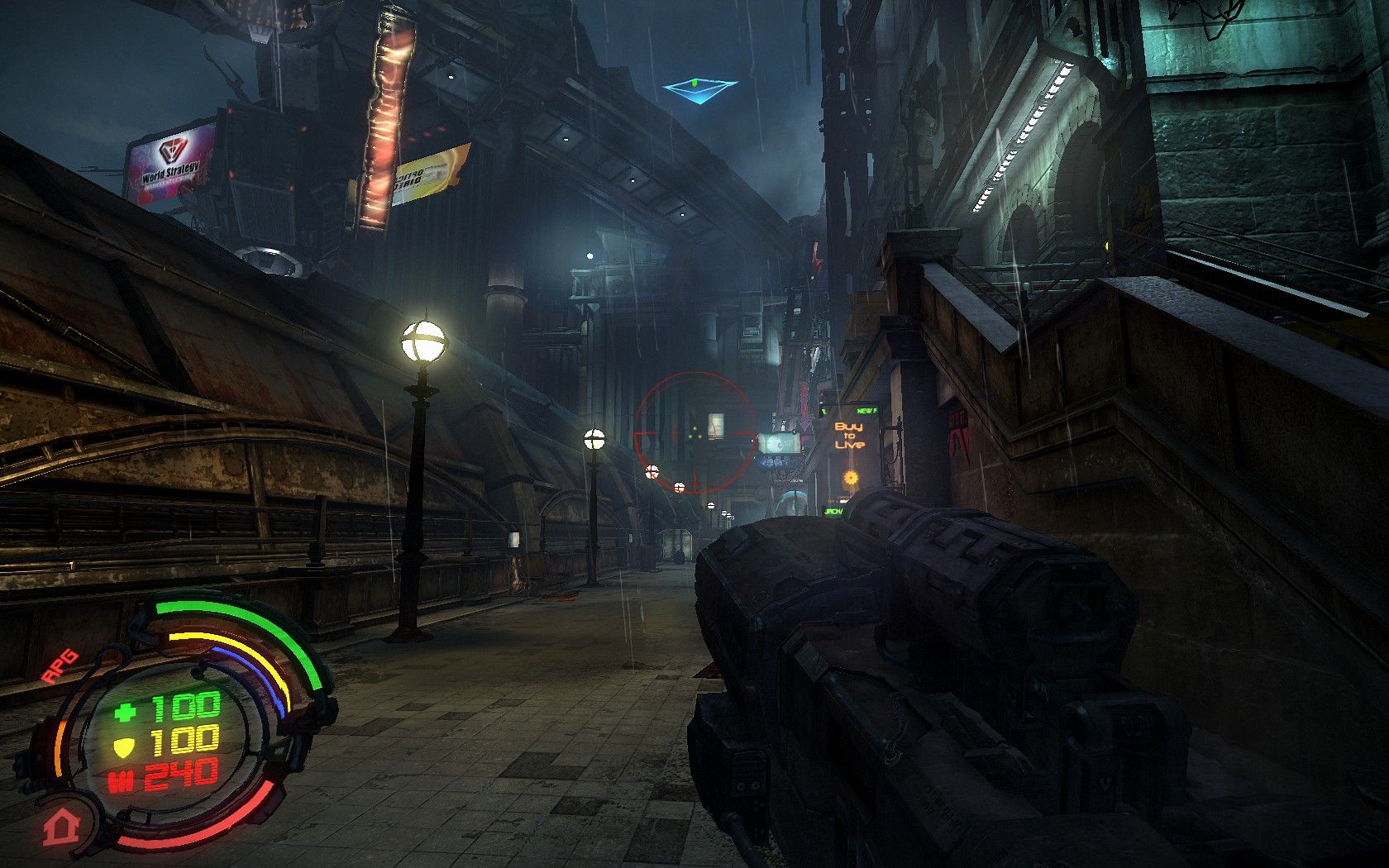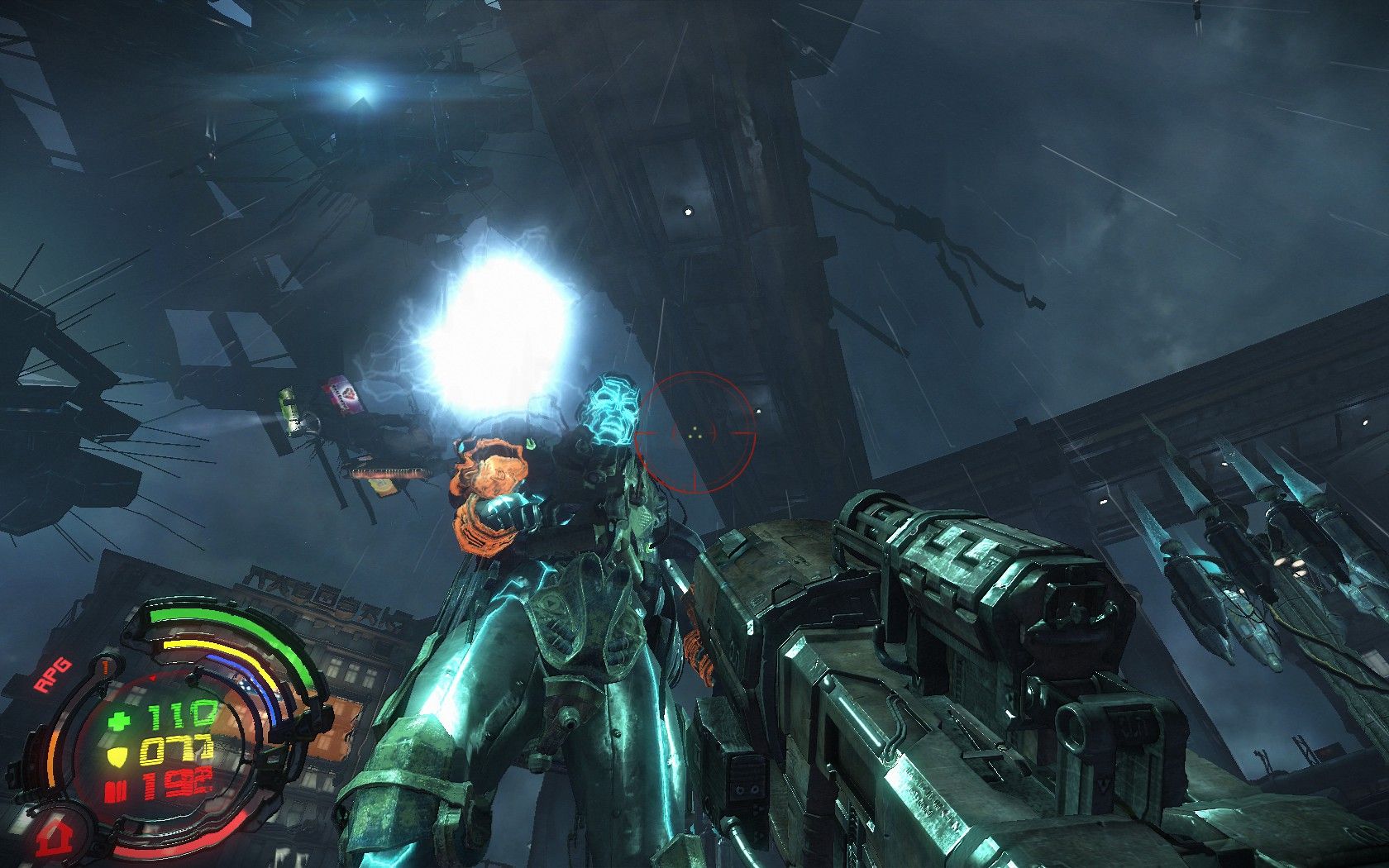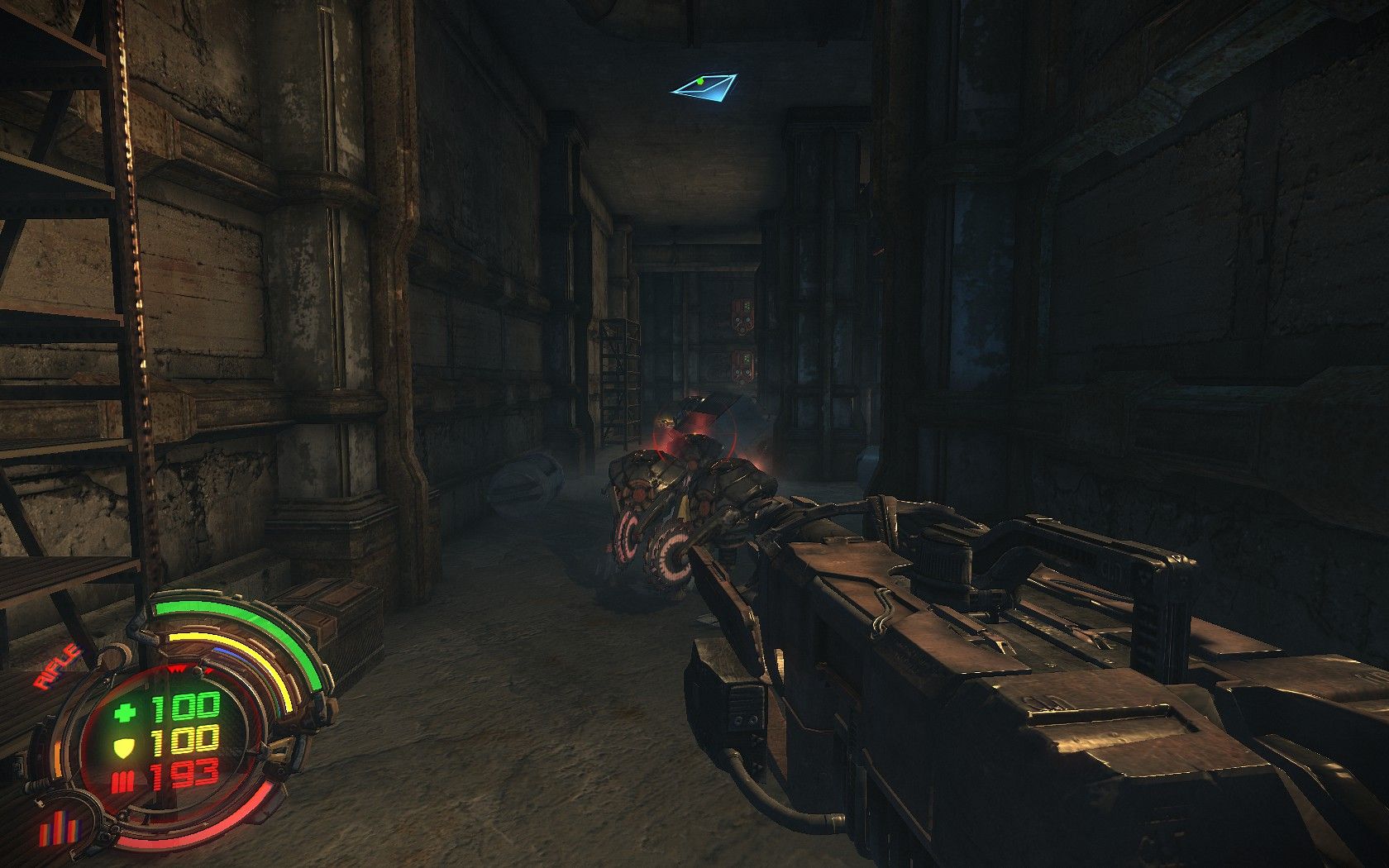Flying Wild Hog’s Hard Reset is an indie shooter that channels the first person corridor shooters of old. It has a number of influences, but is reminiscent of some of the best, such as the original Doom, Quake and “newer” games in the genre like Painkiller. Hard Reset takes place in a futuristic city where robots are generally feared and controlled by some kind of mysterious, evil AI. It is your job to singlehandedly destroy the invading robot population and stop the flow if you can.
Hard Reset is an ambitious game. It exists as a technological marvel amongst the indie scene. The graphics and basic mechanics are not just competent, but flat out impressive. The gameplay however suffers from being bland and repetitive. It is a game that comes very close to being good, but unfortunately it tends to get in its own way and exists as merely mediocre at best.
The good side is very good. Hard Reset is a very pretty game. Though you will see the same enemies and architecture again and again, they all look rather impressive. This is made all the more impressive because of Flying Wild Hog’s status as an indie developer. The guns look appropriate, and morph into their alternate forms with a smoothness that belies their bulky shapes. The enemy designs, while few, are well detailed and degrade appropriately as you hit them with bullets or plasma. The world is neon lit and filled with little bits of colorful humor, such as amusing holographic spam messages that broadcast advertisements to you when you get close to them. Slow-flying airships plastered with advertisements fly over you, ignoring the chaos in the streets. Graphically, the game does a very good job of emulating the cyberpunk atmosphere found in other media, such as Blade Runner, Ghost in the Shell or Snow Crash.
Unfortunately the story and gameplay are not able to keep up with the graphics. The story suffers from not only being generally incomprehensible, but also something of a hindrance, as the characters are silly and the plot filled with a ton of nonsense. The presentation of the story is mostly done between levels, in graphic novel sequences reminiscent of Max Payne. Unfortunately, the dialogue, even when it does make sense, is further harmed by the developer’s strange choice to avoid the use of contractions. So you have a character that enunciates his sentences, but is supposed to be gruff, uncaring and who curses like a sailor. It all comes off as not very well thought out. Of course the developers don’t even seem to care about the story themselves, as about a quarter of the way through any given cinema, the game seems to encourage you to press any button on your keyboard and move on.
The gameplay is probably the most disappointing aspect of Hard Reset. It is an old-school corridor shooter, and never really changes from that, except for the two boss battles. You walk from alleyway to alleyway, street to street, get blocked by a barrier, fight a ton of robots along the way, switch off the barrier and then backtrack to the original barrier. Sometimes you go around the barriers though some roundabout way. It feels very arbitrary, and happens so often I could not help but wonder if the developers were just doing this as a way to extend the gameplay time. It is so old school that you can not even crouch. While the combat starts off fun enough, with the encouragement to blow up things in the environment to help destroy the robots, it quickly grows repetitive.
This is not helped by the fact that there were maybe only four or five different types of enemies throughout the entire game, so the combat became rather dull rather quickly. The whole game felt like an exercise in repetition. There are two massive boss fights, but they were surprisingly easy in a game that was generally unforgiving. Playing on the Normal difficulty was fine. I did die a bunch, but even so, the game barely lasted four and a half hours.
There is an upgrade system for your guns and your armor suit, the one consolation the game gives to the modern era. As you destroy enemies and explore the city, you collect orange capsules of “Nano,” the in game currency. You use Nano at upgrade stations scattered around the world and can upgrade your guns so they can transform into new guns, or gain new firing modes. You can also upgrade your armor and health (though it does not feel like it helps much) or even your HUD.
The guns themselves are neat. There is a plasma weapon and a machine gun. I tended toward the machine gun, but checking out a lot of the upgrades, the two guns really aren’t that different past their looks. The animations for the guns as you change between their various firing modes are cool, but at the same time, none of the weapons ever really feel that powerful. Even the rocket launcher would take upwards of five or so shots to kill many of the enemies. It wasn’t that the game was difficult on normal either, it was a nice challenge, but it was so repetitive it was dull.
And that is the heart of it. Hard Reset is a game that could have been better had it had any sort of variety. Instead, you’re stuck in pretty, yet vapid and repetitive environments fighting pretty yet unexciting enemies. This is especially bothersome when you realize that every level simply loops back on itself and feels like there are large sections thrown in with the sole intention of extending the gameplay time. The game felt like a chore at times, and was surprisingly dull for a game with weapons and enemies that seem awesome on paper. Hard Reset is an ambitious title, and I look forward to seeing what the developers do further with the graphics technology they used in the game, but as it stands now, Hard Reset is merely just hard to recommend, especially at a $30 price point.




